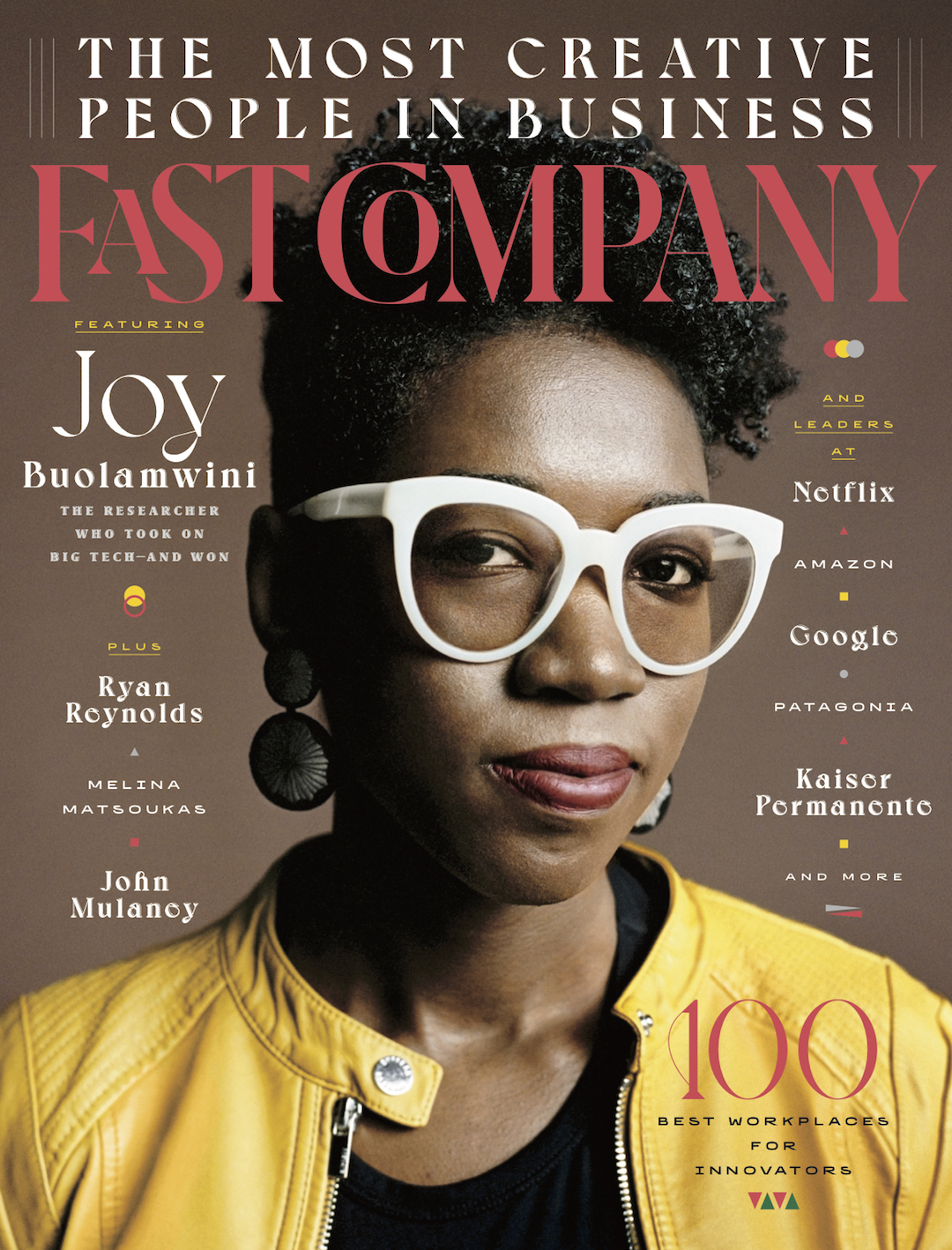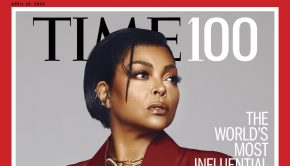THESE are the 10 Most Creative Black People You Should Know
We could all use a little inspiration right now and Fast Company is delivering as they just announced their annual Most Creative People in Business list. Key highlights among the full list are a group of young Black professionals that are changing the way we live, work and interact with each other both online and in-person, creatively and professionally. Below are the 10 Most Creative Black People You Should Know:
- Joy Buolamwini (she also graces the cover Fast Company’s Most Creative People in Business issue), whose research at MIT led to two groundbreaking studies on how Amazon, IBM and Microsoft are unable to classify darker female faces as accurately as those of white men— and effectively shattering the myth of machine neutrality. Joy was recently back in the news, having called for a complete halt to police use of face surveillance earlier this year (Amazon, Microsoft + IBM all agreed to stop using it). Joy’s work has never felt more urgent as the pressure to eradicate systemic injustice and bias grows stronger each day.
- Parris Goebel: In a world of stigmas surrounding who ‘should have” been shown in lingerie, leave it to Parris Goebel to showcase a diverse, 100-person group of models, activists, and dancers ferociously twerking, strutting, and celebrating across a stage for the Savage x Fenty lingerie fashion show last fall—a music-and-dance extravaganza full of inclusivity and body positivity. She’s also choreographed for Ariana Grande and Justin Bieber, directed music videos, and worked with Jennifer Lopez on February’s Super Bowl halftime show, highlighting Goebel’s award-winning dance crew, the Royal Family. She’s shaking up the status quo in the dance world and she’s only just getting started. Parris will soon direct a film adaptation of her dance production “Murder on the Dance Floor” for Sony.
- Reginald Dwayne Betts: Meet the felon-turned-attorney-turned poet fighting for justice reform. Betts published his third volume of poetry, Felon, born out of the nightmare he experienced for more than eight years as a prisoner after being convicted, at age 16, of carjacking. Following his 2005 release, Betts earned a BA and an MFA, published a memoir, earned a law degree from Yale, and worked as a public defender. Felon illuminates the inequalities of the criminal justice system by turning its own language against itself.
- Melina Matsoukas: Filmmaking is her form of activism – Her first feature film, Queen & Slim, is stylish, sexy—and unflinching in its portrayal of American racism. The November 2019 film was inspired, after all, by videos of Sandra Bland and Eric Garner during their fateful police encounters and feels even more relevant today. She’s also directed Beyoncé’s “Formation” video – a career turning point for her – which is filled with references to institutional racism and Black pride. Melina is continuing to push herself to create and represent [Black] culture in a way that hasn’t really been seen before, in a celebratory way, while also speaking to struggle and trauma Black people regularly face.
- Krista Scruggs: Since launching her natural winery, Zafa Wines, in 2017, this Vermont-based vintner has produced groundbreaking vintages that frequently blend apples with grapes (and even maple syrup) to create what’s known as “vinous ciders,” a burgeoning new category. Scruggs recently acquired a plot via the Vermont Land Trust and began planting her own vineyard focused on regenerative agriculture,establishing her—as she points out—as one of the 1.3% of Black farmers in America.
- Anifa Mvuemba: COVID-19 might have canceled in-person Fashion Week presentations but Anifa Mvuemba, founder of the direct-to-consumer fashion label Hanifa, didn’t let the pandemic stop her from unveiling her latest collection. In May 2020, the Maryland resident held the world’s first virtual fashion show, which was streamed on Instagram Live to Hanifa’s quarter of a million followers. Hanifa generated $1 million in revenue in 2019, and Mvuemba is currently planning to open her first brick-and-mortar store, in Washington, D.C.
- Angela Benton: Did you know that you can get paid while you Netflix and chill? Angela Benton (with the help of investor Issa Rae,) is behind this new service called Clture. It transforms the video and audio people stream on such platforms as Amazon Prime, Hulu, Netflix, and Spotify into a license proving that they own that data. Then Clture pays the user an up-front fee for it. The data is made anonymous and goes into Streamlytics’s API, where clients, many of them streaming companies, pay an annual sum to access it. Benton is giving the power back to the consumer who are literally the backbone of these streaming services.
- Matthew A. Cherry: Former NFL player Matthew A. Cherry was inspired by viral videos of dads doing their children’s hair, to make a short film about a girl’s relationship with both her curls and her father. Even today, he says, “seeing Black fathers being affectionate toward their kids is an anomaly.” The result is Hair Love, a seven-minute-long film that won 2020’s Oscar for best animated short. After a more than successful Kickstarter campaign (he raised nearly four times what he set out for), allowing him to finance a Hair Love children’s book, which became a best seller. The release of Hair Love also coincided with the passage of the Crown Act in several states, which bans discrimination against natural hairstyles in schools and the workplace.
- Jeremy O. Harris: He’s making theatergoing more accessible to all with his recent Broadway dramedy, Slave Play. When he brought it to the Golden Theatre last year, he told his producing partners that he’d only do so if young Black and brown theatergoers had the same access as the older white ticket buyers who typically patronize Broadway. He also held “Black Out” nights, where he reserved every seat for Black audience members and noticed right away the differences in where they laughed but also how they laughed.
- Nneka Ogwumike: Under the leadership of WNBPA president Nneka Ogwumike, a 29-year-old former WNBA MVP, the maximum WNBA salary went up by almost 83%, to $215,000, and the women now enjoy the same share of league revenues—50%—as their male counterparts. This deal also provides maternity leave with full salary, a dedicated space in arenas for nursing mothers, and a $5,000 annual childcare stipend. With Nneka’s direction, this bargaining agreement was hailed as one of the most progressive in the history of women’s sports.
You may view how theses winners were chosen and the full list of the ‘Most Creative People in Business’ here: https://www.fastcompany.































